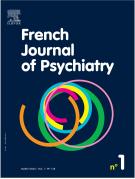Suicide attempts among French and Brazilian adolescents. A comparative study of clinical, cultural and environmental factors - 29/05/20
Résumé |
Introduction |
In Brazil, epidemiological data have shown an increase in suicide rates among adolescents in the past three decades. There are few data available concerning prevalence of suicidal behavior (SB) in this population. In France (a country with different socioeconomic characteristics), SBs are better studied. Understand the individual and environmental factors associated to suicidality is mandatory in order to think about public policies and interventions. We aimed to compare two clinical samples of adolescents suicide attempters, one from France and other from Brazil, in order to investigate clinical, cultural and environmental factors associated to SB.
Method |
We compared 45 Brazilian adolescents admitted to the emergency department of a university hospital in São Paulo, Brazil and 320 adolescents hospitalized in 5 pediatric departments across France, after a suicide attempt (SA). Several validated instrument were used in both countries, including the Kiddie schedule for affective Disorders and Schizophrenia–present and lifetime version, The Columbia Suicide Severity Rating Scale, The Beck Depression Inventory, The Beck Hopelessness Scale, The Adolescent Coping Scale, The Spirituality Scale, The Ab-DIB and the Relationship style questionnaire and Dep-Ado. Descriptive analyses and univariate and multiple regression models were completed.
Results |
There was no significant differences between the 2 groups for age, sex, number of siblings, family structure, or special schooling. Brazilian adolescents had more antecedents of previous (P=0,002) and lifetime number of SAs (P=0.001); more deliberated self-harm (P<0,001); more diagnostic of borderline (P 0.002) and lifetime anxiety disorder diagnosis (P<0.001); higher score of depressive symptoms (P<0.001) and alcohol and cannabis use (P<0.001); presented attachment styles more detached (P<0.001), insecure (P<0.001) and worried (P<0.001); scored higher on spirituality and beliefs (P=0.021); relied more on social action (P<0.001) and spiritually (P<0.001). French scored higher for use of other drugs (P<0.001); as well as on self-discovery (P<0.001); life philosophy (P=0.01); autonomy (P<0.001); coping with social support (P=0.011); investing in friends (P=0.004); wishful thinking (P=0.002) and physical recreation (P=0.013).
Conclusion |
We found more severe psychopathology among Brazilian adolescents and differences in styles of attachment and coping skills probably as a result of the influence of social, cultural and environmental factors.
Le texte complet de cet article est disponible en PDF.Keywords : Suicide attempt, Adolescents, Psychopathology, Environmental factors, Cultural factors
Plan
Vol 1 - N° S2
P. S15-S16 - décembre 2019 Retour au numéroBienvenue sur EM-consulte, la référence des professionnels de santé.
L’accès au texte intégral de cet article nécessite un abonnement.
Déjà abonné à cette revue ?


